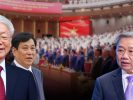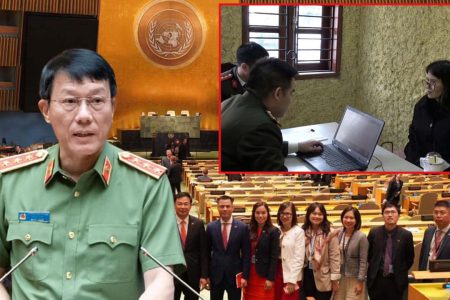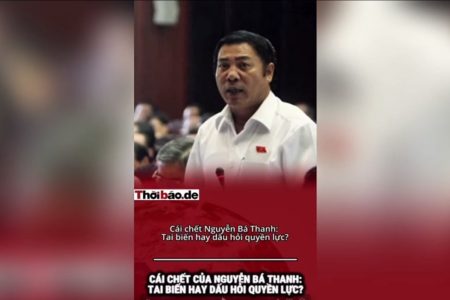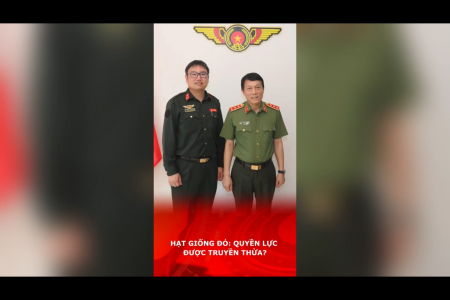
In the first weeks of January 2021, Vietnam’s state-controlled media reported about a case of “spending VND27 billion ($1.16 million) to buy the position of “deputy director” at a ministerial department.
It is worth noting that the press considered these cases „not too surprising“ because the media of the CPV and the Vietnamese government have talked about the phenomenon of „using the money for power lobbying“ for a long time.
More lobbying on the party’s congresses?
Lao Dong’s electronic version (January 15) writes:
„The public is interested in the case, but not too surprised by the case,“ The giant woman told the police that she gave $150,000 to a department director to lobby for higher positions.“
According to Vietnamese newspapers, the person in the question also claimed to have spent more than VND27 billion and many other assets to buy the „deputy director“ position at a ministerial department.
The „unsuccessful purchase“ is being investigated by the police and it is known that the authorities „have recovered more than VND3 billion and a Toyota Camry car.“
Vietnamese newspapers do not specify who has received the money to sell the position.
In the Vietnamese political and administrative system, middle and high-ranking cadres are all governed by central agencies, and the qualifications for a candidate to be nominated and appointed are closely monitored.
At the same time, the existence of lines running positions, or placing money for an official or a collective of officials and leaders having the right to decide and promote people to middle and high-ranking positions were mentioned much by the Vietnamese state-controlled media.
The case of „using money to lobby for a state official post” broke not long after Vietnam’s highest leader, General Secretary cum State President Nguyen Phu Trong hosted an anti-corruption conference with 5,000 delegates on Dec 12 last year.
The spirit of this conference in Hanoi is to „step by step improve the strict prevention mechanism to ensure no tolerance for corruption.“
Still, the Nguoi Lao Dong newspaper (January 18, 2021) has written comments:
„Using money for lobbying” cases have enough from the grassroots level, district level, provincial level to central level, related from low to mid to high-level officials. A number of people holding the rank of general, the positions of deputy ministers, and ministers were unveiled that they have received from lower-ranking individuals for promotion.
It is quite common, as recently revealed corruption cases, offspring, and relatives of officials act as brokers or leaders.
Therefore, General Secretary cum State President Nguyen Phu Trong once talked about the need to separate the close relationship of senior officials from work:
„Do not think of acquaintances, do not think of your relatives or family, or your locality. In the past, people sacrificed for the Fatherland, so cadres today should sacrifice for the nation. The members of the Politburo and the Central Committee should be leading samples.“
Although the top levels made such strong, open statements, the existence of a „black market selling and buying key positions in the state agency is still mentioned.
But the public opinion also pays attention to the huge numbers revealed by the latest cases.
Just a deputy position in a ministry’s department that people are willing to „invest“ over $1 million because they will have to „make money“ when sitting on the seat of power level.
The state-controlled media has not reported using money to lobbying into higher positions, but seem to have admitted this is part of the dark side of political activity in the country.
The media also criticized this as a phenomenon of injustice to those excluded from the appointment process that should have been made public, transparent, and arbitrator.
The Government Inspectorate page even describes what a National Assembly delegate said in November 2019, making interesting comments about the bustling times of the black market of selling and buying key positions in state and party agencies.
„It is not easy to answer who buys and who sells, just know the public opinion of this black market is often bustling during elections and congresses,“ said national legislator Nguyen Tien Sinh from Hoa Binh province.
In a recent article on the BBC News Vietnamese Forum page, lawyer Nguyen Huu Liem from California, USA made another comment about the Vietnamese bureaucracy.
According to him, the majority of officials „were bourgeois,“ no longer „proletariat“ in the context of Vietnam follows the market economy.
However, the CPV has determined that „lobbying for power“ is a form of alienation of power; the fact that people in power have „used the power assigned to them for personal benefit or allow their relatives and acquaintances to take advantage of their positions and powers for their interests.”
General Secretary Nguyen Phu Trong, the leading theorist of the ruling party in Vietnam, continues to emphasize the communist spirit, the revolutionary morality of the officials as an anti-corruption remedy, running in power.
So far, the Vietnamese political system, which is fully controlled by the Communist Party, rejects the existence of an independent monitoring mechanism according to the isolationist model that the international community believes is more effective than the principle. monopoly in combating abuse of power and exchange of power.
At the same time, the big problem not only for Vietnam and Southeast Asia in these years of the 21st century is how the rulers show respect for transparent procedures and fight inequality of opportunity.
According to Michael Vatikiotis, Asia Director of the Center for Humanitarian Dialogue wrote in the Nikkei Asian Review (January 16, 2021), transparency and injustice are the two leading problems in this continent in the coming years.
It is not clear how the CPV after the 13th National Congress will resolve these two issues more specifically than a verbal call.
Thoibao.de (Translated)


























